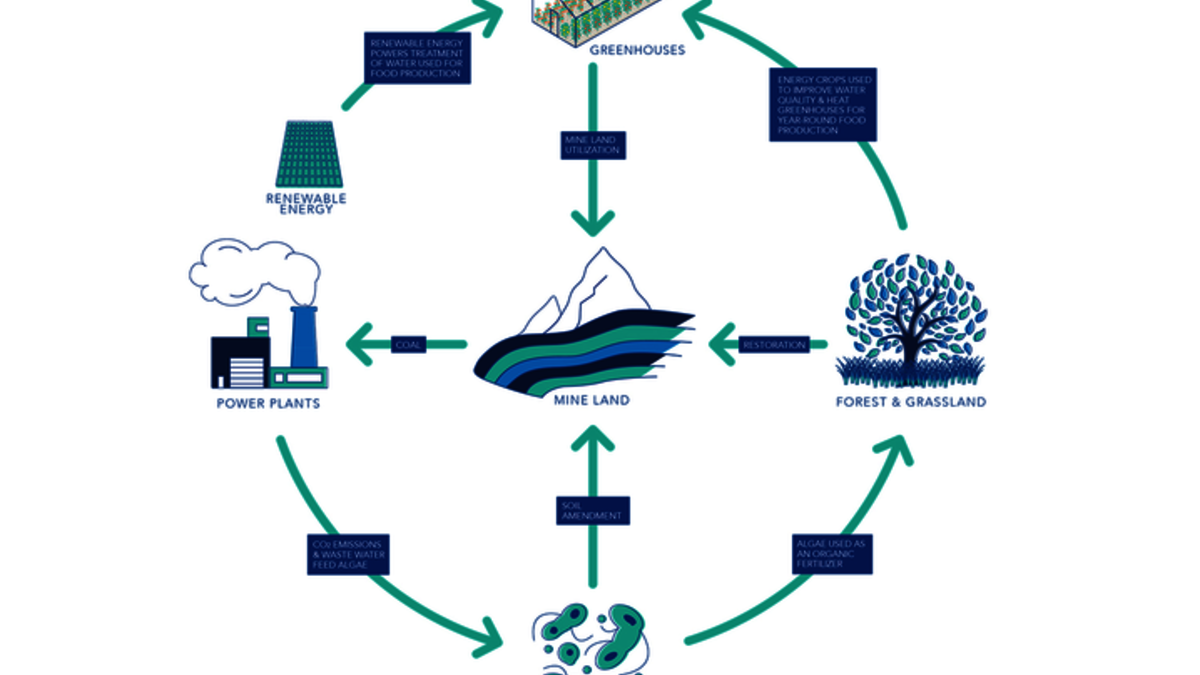$3 Million NSF Grant to Support the Next Generation of Kentucky Food, Energy and Water Systems Innovators
$3 Million NSF Grant to Support the Next Generation of Kentucky Food, Energy and Water Systems Innovators

A multidisciplinary University of Kentucky team will provide unique graduate educational opportunities in food, energy and water systems, thanks to a new National Science Foundation (NSF) Research Traineeship (NRT) grant.
This UK-based NRT, which is titled IN FElloWS, and an Academy of Innovators at the Nexus of Food, Energy and Water Systems, will be led by Mark Crocker, associate director at the UK Center for Applied Energy Research (CAER) and a professor in UK’s Department of Chemistry. It will engage researchers from UK’s Colleges of Agriculture, Food and Environment; Arts and Sciences; and Engineering. UK will receive nearly $3 million from NSF to support this new initiative.
Food, energy and water systems face numerous challenges in Kentucky, across the nation and throughout the globe. New approaches are needed to ensure adequate food supplies for increasing populations, to foster the development of sustainable and carbon-neutral sources of energy and to improve the management of water resources.
Leading those solutions and community-based approaches will be a trained and diverse workforce, integrating an evidence-based, STEM educational model with interdisciplinary research focused on innovation. The project will combine graduate student training with cutting-edge research in mine land remediation, water treatment, crop production and power generation and will help address the need for innovators in food, energy and water systems.
The need for innovative leadership is particularly urgent in Appalachian states where economic dependence of agricultural and energy sectors results in water management issues. In addition, the decline of coal mining is forcing the economy to diversify.
“This is an exciting opportunity for graduate education at the University of Kentucky,” said Crocker. “Graduate training has traditionally taken a monodisciplinary, one-size-fits-all approach. This program recognizes that the solutions to our toughest problems require a multidisciplinary, team-based approach, and we have assembled a talented group of campus collaborators who will help deliver a 21st century graduate experience.”
The academy is expected to train 120 students. The grant will provide 21 of the students with financial support for their graduate work in chemistry, biosystems and agricultural engineering, chemical engineering, forestry, plant and soil sciences, horticulture, and agricultural economics.
In addition to Crocker, who will serve as principal investigator on the NRT, the project will include the following researchers: Eduardo Santillan-Jimenez, UK CAER; Carmen Agouridis, Biosystems and Agriculture Engineering; Tyler Mark, Agricultural Economics; Isabel Escobar, Chemical Engineering; Christopher Barton, Forestry; Luke Moe, Plant and Soil Sciences; James Landon, UK CAER; Seth DeBolt, Horticulture; and Jacinda Dariotis, University of Cincinnati Evaluation Services Center.
“The workforce needed to address society’s challenges must be both well-trained and diverse,” Santillan-Jimenez said. “This National Science Foundation funding will be instrumental in helping UK enhance graduate education by fully integrating research and professional skill development within an inclusive, multidisciplinary and supportive academy.”
Topics to be addressed include mine land restoration to improve hydrology and water quality; the use of greenhouses on restored mine land for year-round food production, requiring localized water treatment powered by renewable energy; the use of algae to treat CO2 emissions yielding organic fertilizer for soil improvement in reclaimed mine land areas; and biomass upgrading to fuels and chemicals, focusing on the valorization of lignin.
